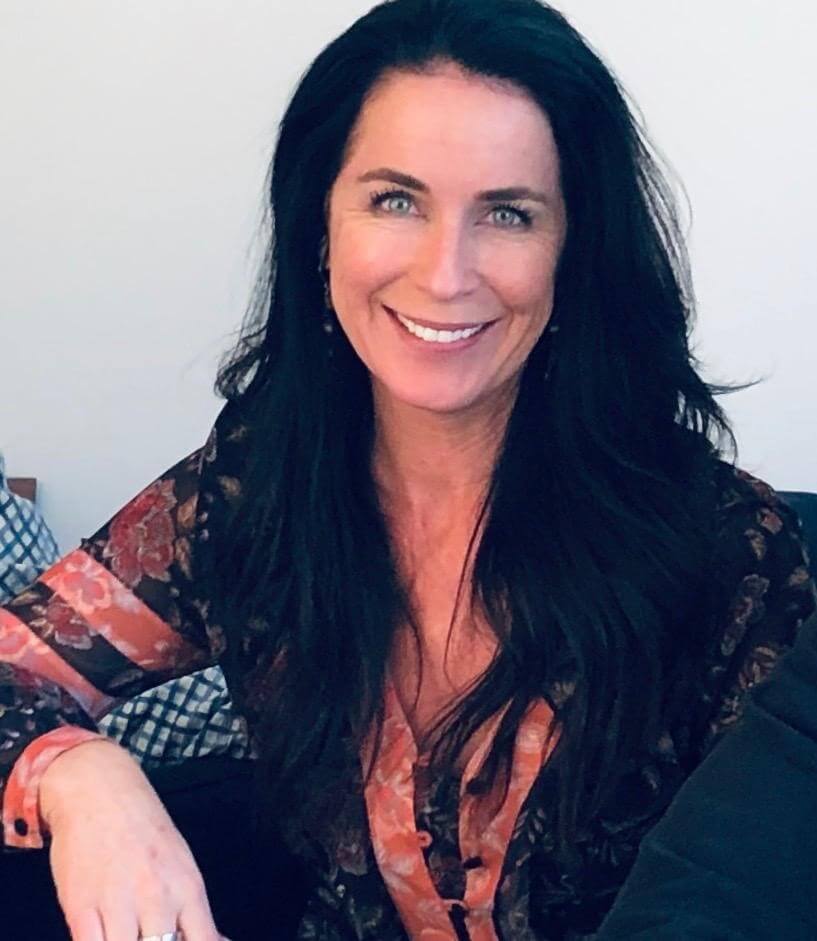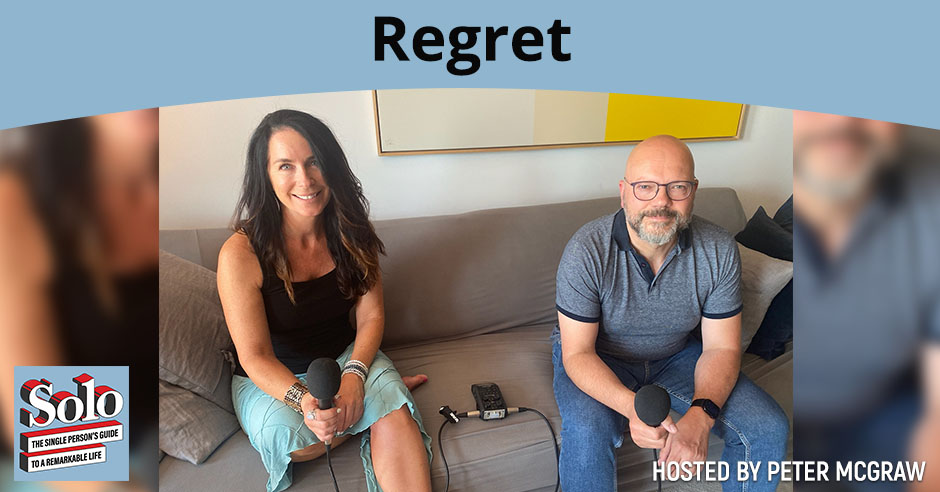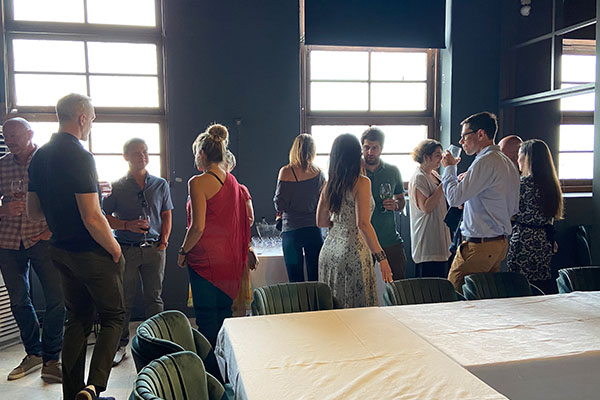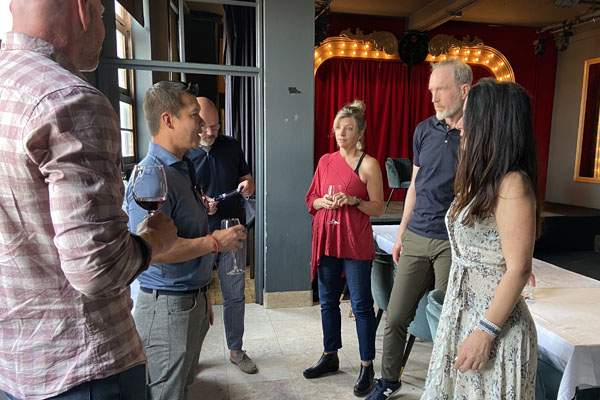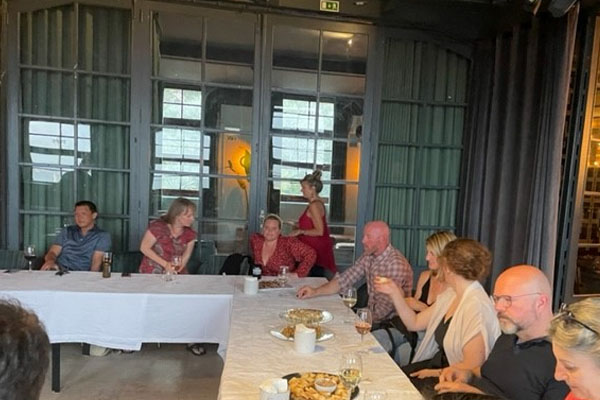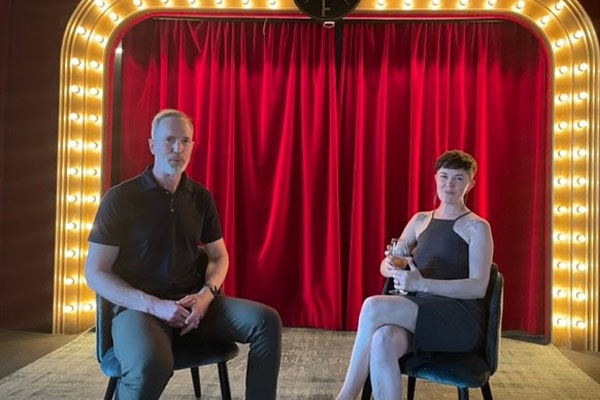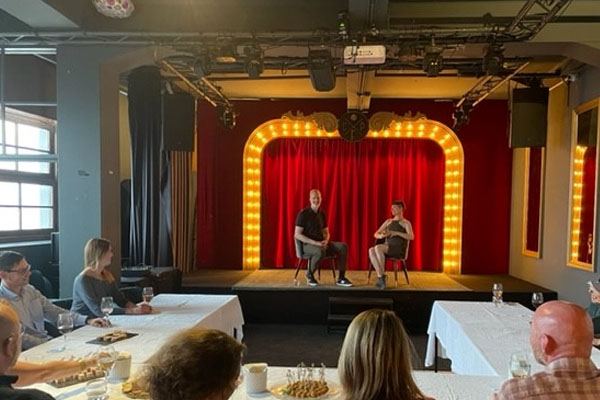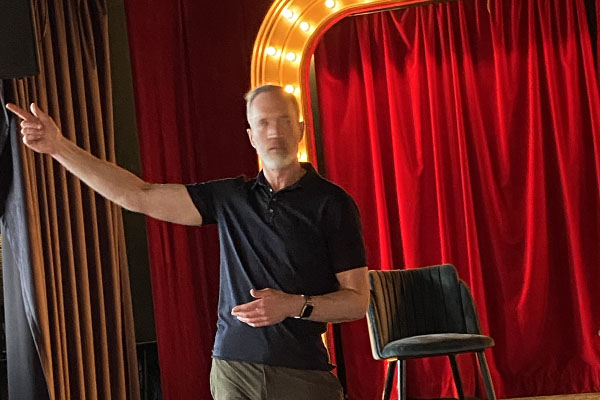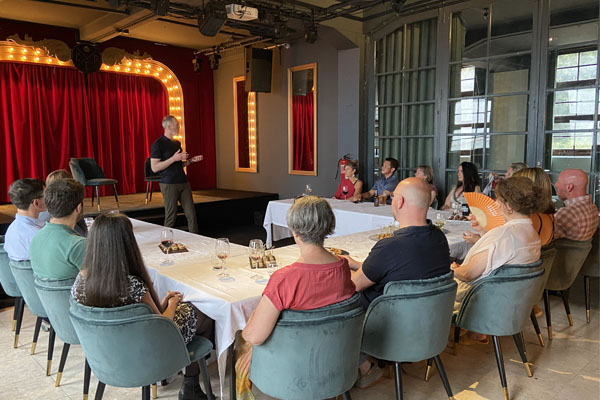A remarkable life demands decisions – sometimes big, bold decisions. Big or small, decisions risk regret. Do I get married? Do I have kids? Do I go solo? Peter McGraw invites Marcel Zeelenberg, the world’s expert on regret, to talk about what makes a choice regrettable.
—
Listen to Episode #123 here
Regret
A remarkable life demands big and sometimes bold decisions. Do I get married? Do I have kids? Do I go solo? Big or small decisions risk regret. In this episode, I invite the world’s expert on regret to talk about what makes choices regrettable. He also happens to be an old friend. Marcel Zeelenberg is a Professor of Economics Psychology at Tilburg University and a Professor of Behavioral Research in Marketing at VU Universiteit Amsterdam, both in the Netherlands. He studies how emotions influence decision-making and how decisions in their outcomes influenced the experience of emotions. He’s been studying the Psychology of Regret for many years now, and also studies the emotions, disappointment, guilt and shame, envy, pride, and anger.
We are joined by a familiar voice guest cohost, Julie Nirvelli. She was born and raised in San Jose, California, and got her college degree from Cal Poly San Luis Obispo. She has lived in Colorado for many years. She is a strong, independent and fun-loving person. She embraces the solo life. She’s also a Solo sponsor with her company, Bachelor Girl Productions, which offers you Fun 30 t-shirts. We have a fun and fascinating conversation. I hope you enjoyed the episode. Let’s get started.
—
Welcome, Marcel.
Thank you, Peter.
Welcome back, Julie.
Thank you. It’s great to be here as always.
Where is here?
We are in Lisbon, Portugal of all the places.
In our Airbnb.
In your bedroom.
People already think weird things about my sex life, probably.
It has the best acoustics here.
It does. Why are we in Lisbon?
We decided to do a solo group trip and while we were here, we decided to have the first international solo salon.
We brought the salon back to Europe.
We did, and it was so great to connect with people, literally from multiple countries.
We had two groups come together. There were seventeen in total in a lovely venue. We had some members of the Solo community come. If you are not a member, you can sign up at PeterMcGraw.org/Solo. We had people fly in from America and UK for this. It was pretty incredible, and then a bunch of locals who are proud singles.
You had people fly in from the Netherlands.
Marcel, you are proud but you are not single. You are here because you are in, my opinion, and the opinion of Google scholar, the world’s expert on regret. Not regretting things, but studying regret.
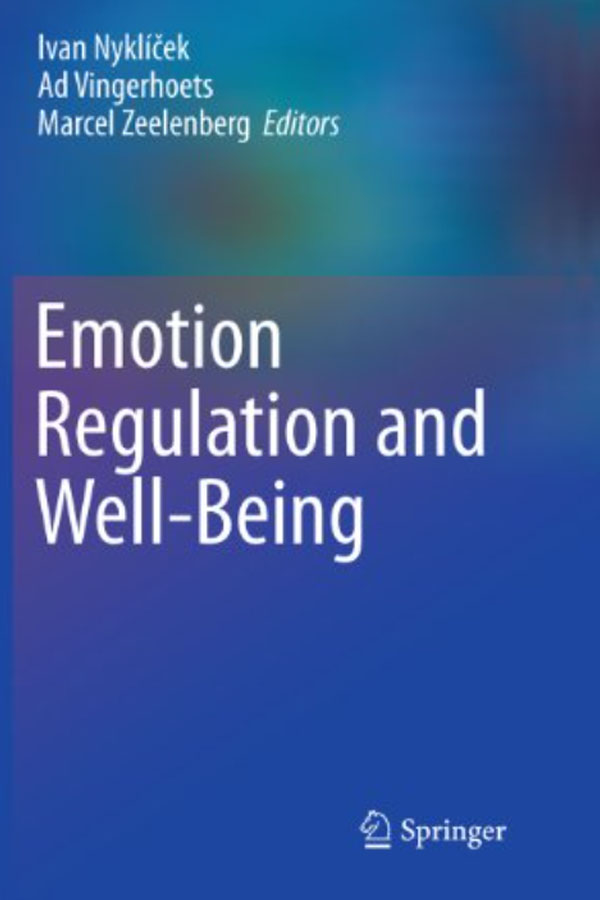
Trying to understand what regret is and what regret does.
You’ve spent much of your career doing this. When I met you in 1997, you were a newly minted PhD, and I read your dissertation about regret and disappointment. He has forgotten more about regret than I know, and I studied it for a while, just to give you the perspective.
I cannot argue with that. It is most likely true. When it says something about you, it also says something about me.
It does indeed. It makes you look good and me look bad.
It also says something about my memory.
Let me set this up. This show has two elements, exploring singlehood and then exploring what makes life remarkable. In order to live a remarkable life, it helps to understand how we think, feel, and behave in general and how we function as human beings. This topic is especially relevant to single living, however. The reason for that is that if you live in the world as a solo, especially family-free, in a world where the family is the default. Most people do it.
There’s this potential for regret later in life as you reflect on your life and say, “I regret not having children and not getting married.” Before we get into that phenomenon, I bet that was the motivating factor besides the convenience of having a world’s expert here. Let’s talk about what regret is and what it is not.
I’m happy with how you introduced it because when you asked me to talk about regret in your show, I thought, “What I’m going to talk about in a solo show about regrets being somebody who’s in a stable relationship for years?” Being on the escalator, in the escalator, or part of that movement, that is not part of this movement. Regret is an emotion. Emotions have evolved to help us navigate our way through the world to help us make decisions and behave in a certain way. While lots of information is coming towards us, emotions help us to single out the stuff that is important.
I like to think of emotions as a way to learn in some ways that emotions tell you, “Don’t do that again or do that again.”
They are indicators of your concerns like what is important to you or not? They prioritize behavior to either act if your concerns are threatened or basically continue what you are doing when your concerns are satisfied. The prioritization of behavior makes emotions super interesting to study because they have an effect. They do something. When you become emotional, you act in a certain way, and it also holds for regret. It’s the feeling that A) You have done, and B) Retrospect you would have liked to do. It’s a decision that you made.
It’s choice-focused. In many ways, regret is similar to many other emotions, but it’s unique in the sense that the only emotion that is uniquely tied to decision-making. You cannot feel regret over stuff where there was no decision. I’m from the Netherlands. In the Netherlands, the weather is not always the way it is in Lisbon now. It’s beautiful here and warm. We have lots of rain.
Sideways rain, which I’ve experienced.
Rain from any direction.
There are no umbrellas in Lisbon.
You take the umbrella to keep your hair dry.
You don’t need one?
The hair on the chin also counts. Imagine if I walk to work, which I often do, and it rains and I get wet, I don’t regret the rain but I regret not bringing the umbrella or not putting on the raincoat.
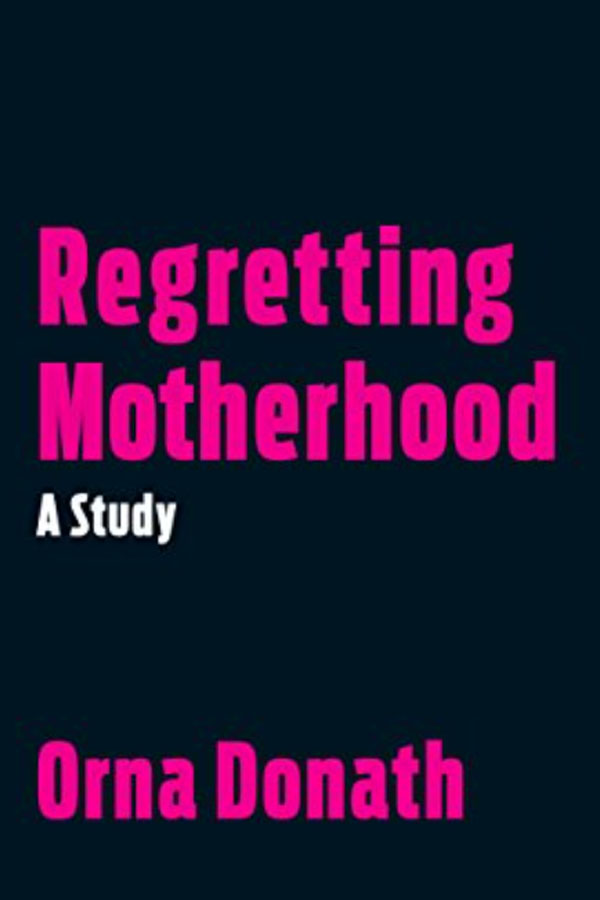
You may be disappointed that it’s raining but you are not regretful.
Regret is uniquely tied to decisions. If you feel regret, your tendency is to undo the decision. If you are already wet, there’s nothing that you can do about it, but if I regret being not nice to you, I might apologize to make up for it. It’s correcting emotion that tells me, “This wasn’t a mistake. Do something about it or remember it well, and don’t do it the next time.”
When I am at the supermarket checkout and I’m picking the queue and someone is taking a very long time, I might switch lines. If I don’t, I regret the choice that I made.
That is the type of regret that you’ll all run into. The silly choices we make and the silly things we do. Big regrets like choosing the wrong career or partner, choosing a partner if you don’t want one or not, or choosing a partner if you wouldn’t like one, basically the process and the principles are the same. If you did something and they respect it, you would have liked to do something else.
I have never thought of emotions in the way that you described them or never thought about regret much.
Julie regrets a few things.
I also want to talk about that and I hope I’m not jumping the gun here, but why some people are more regretful than others. Do they make worse decisions and therefore have more regret? Do some people accept the way things are more or accept the way things go? I would say that I don’t have lots of regrets.
You already take it for granted that people are different in their tendency to regret. If you know some people that always kicked themselves and think about things that went wrong. There is some research about that, but not where that is coming from. There is some research about what it is associated with. These are people that always want the best and do their best to get the best. These are also the same people then often worry that they would have been able to get something even better.
We call them maximizers in the behavioral sciences.
Those maximizing people are also the people that end up regretting the most. There is a paper that is not written. It has been in my mind and my colleague like Peter’s mind for many years. You Can Run, But You Can’t Hide is the title. Some people who are always trying to prevent regrets from happening are the ones that end up feeling the most regret. We haven’t done the research but that is what we think is happening.
I trust your instincts. Let’s assume that’s true without the data yet.
You’ve told me before about a study where you’ll have to be more specific about it. If you are given a menu in a restaurant and there are too many choices, people are more likely to regret what they have chosen.
That’s a general finding. Not to belabor this too much, but lots of choices are not always bad but it can be bad. It does open up the possibility that if you ordered the fish and then someone else gets the steak that at that moment when the food arrives, you’ve regretted your choice. The fact that there are more options, and this is not food on menus, but this is one of the things that people lament about online dating, for example, is that there are lots of what we call counterfactuals.
It’s a thought of what could have been in some other imaginary option. To further answer your question, I do believe that there’s an individual difference in people’s imagination. Their tendency to seek out and to think about what could have been unlike the Buddhists of the world who was like, “This is the way life is,” and they don’t bother with those other lives that could have been created by a different choice.
What makes it interesting is that, in some sense, it’s good to be imaginative and think about all the possible ways that you can lead your life and all the decisions that you can make. It leads you to lead a more remarkable life. There are many more things that you can choose from, but you are aware of all the things you didn’t choose. The more options you have, the more things you didn’t do. If you are sensitive to that, it might lead to more regret.
There’s another famous, within nerd land, finding that came out close to the time that I met Marcel and caused a little bit of a stir, and that is that regret has a temporal nature has a time course. Will you talk about that?
Decision researchers, like behavioral scientists, mostly our decision researchers have had interesting regrets stemming back to the 1800s. Something like Jeremy Bentham talked about it. Economists talked about it in the ‘80s. Psychologists also around the early-‘80s started to think about people’s regrets. The most important or the most replicated finding is that people regret the things they do more than the things they didn’t do.
It’s a finding of Kahneman and Tversky from ’82. Other American researchers thought about this, and they thought, “That’s interesting. If you talk to older people and you ask them, ‘What do you regret mostly in life?’ They also talk about the things they didn’t do.” They talk about, “I should have done more education, traveled more, tried to hit on that person, or have a better life with that person.”
When people are old and they look back at their life, they think about all the things they didn’t do. That was strange in relation to the finding that people regret the things they do. Then there are solutions to this as well. Maybe there is some temporal pattern that in the short run, people regret the things they do, but in the long run, they regret the things they didn’t do. There are multiple factors tied into that.
If you make stupid mistakes, they stand out. These are the actions in the short run and in the long run, what people do when they look back at their life is think about, “What type of changes would have made a difference in my life?” They then think about, “What could I have done differently? What could I have done more so that I would have had a better life?” These are typically things that they didn’t do.
Hence the idea that people can anticipate this.
Regret is uniquely tied to decision-making. That is one aspect and related to that or also super closely tied to that is that when people make decisions, they might imagine beforehand, “Imagine I choose this and then I find out I should have chosen the other one.” They think about how they would feel. They anticipate the regret over making mistakes, and this has an impact on how they choose. That has been studied in nerdy lab experiments where people make choices and gamble. It also has very clear implications in everyday life. People in marketing are all like this. If there is a sale, they put signs out there. Only a few items left, and that is a clear regret appeal that appeals to your feelings of regret so you’ll hurry to get it without even thinking about whether you need them.
In our case, we have a lottery in the Netherlands. It’s called the Postcode Lottery, and that’s a lottery where your ticket number is your postcode or your ZIP code. Even if you don’t play, your postcode plays. You might not play and find out that you would have won if you played. You would have been a millionaire if you’d played. You get knowledge of results. You get feedback on your decisions, even though you don’t want to play the lottery. No other lottery has that.
I very much disliked that, but it has been super influential in getting people to play this lottery. Now we use the same setup to get people to go to the gym more often. The big difference is we selected people that wanted to go to the gym, but have a hard time committing themselves to it. We made them enter a lottery.
If they committed themselves to want to go to the gym, we told them we will have a draw every week. We first draw a winner, and then we check whether you went to the gym or not. They had to go twice per week. If they went to the gym, they get a prize. If they didn’t go to the gym, we announced that they didn’t get the price. That led to much more people being able to go to the gym regularly. That same regret of version ID, but now for good.
There are individual differences in sensitivity, and then there are also these individual differences in regret minimizing that’s there. Our tendency is to want to avoid negative emotions, not at all times, but in general. This is a powerful one in part because you played a role in it. From a coping standpoint, you are highly motivated to be able to deal with this, and then learn from it.
Many choices we make, we make over and over again. You go to restaurants over and over again. You get into cues that supermarkets over and over again. You may date people over and over again. If you find yourself constantly regretting your choices, you want to minimize that. The one way to minimize that is to make different choices.
I studied at Leiden University in the Netherlands and there was a big professor there. He published this beautiful paper in ‘86 about his own memory. He studied his own memory for six years. He wrote down all sorts of things that happened and things that should make him remember that. He did that for five years, and then in the sixth year, every day, he tried to recollect things. He had written on a sheet of paper, “This was what happened. These persons were there, and this is how I felt.” He found out that the things he remembered best were negative instances that he inflicted himself. These are typically the things where you feel regret, at least with him. It’s one person, two better memories.
That is an important function of regrets. It makes your failure stand out. It makes you recall what you have done wrong, and you need that in order to prevent this from happening next time. The painful part of regrets. We talked about regret and disappointment earlier on. They are very similar. The difference is that in regrets, you are yourself to blame, and that is why regret is more painful than disappointment. That’s why you learn more easily from it. In a paper that came out, that’d be published. We found that some people score high on what we call regrets frequency. Some people feel regrets fairly often, and these are people that are very bad at self-regulation. These are people that don’t learn from the best.
They make the best choices repeatedly. It’s not that those people don’t feel regrets, but somehow, they are not able to implement those feelings of regret in their learning. They make them again and again. We are now trying to understand what is it that causes people not to learn from it because the majority of people do.
Let’s talk a little bit about the management of regret. As I see, there are two. We’ll do them in order. The first one is this idea of regretting things that you’ve done in the near term, and then we’ll get to the big one. The one that we opened this with. I have this community as I mentioned earlier and people submitted some questions for this. I’m going to read one of them. How can we take a past event that we once felt shame about process it and move on? At that point, it is no longer regret. Is it now a memory? This idea of this person said shame, but you regret something and you want to move on from it. How do you let it go?
Before we go specifically into the questions. Regrets, shame, and guilt are often felt together, especially in social situations when older people are at fault. Regret can be purely individual. You do something there’s nobody involved and you wish you would have done something else. Given us, we are social creatures. All the people are either involved or the witnesses who have an opinion about it. You then see that when you feel regret, you will also feel ashamed that you are a stupid person.
The others are seeing your stupidity.
Guilt is much more related to regret, but then typically the negative consequences are experienced by somebody else. I do something stupid and you are hurt by it. I then feel regret and I feel guilty to watch you. If I do something stupid, I’m the only person who suffers then I typically feel regret, but I don’t feel guilt.
If someone witnessed it, you may feel shame.
If you think it reflects badly upon you and the people might have a bad impression of who you are, you are such an idiot or you feel, “I’m the idiot. How can I do that?” It then affects your self-evaluation and it’s also a shame. Often in real life, these things are melted together, especially for important things.
I will give you an example of this. I submitted my grades and I did it in the middle of the night here in Lisbon because they were due and I had jet lag. For the first time ever in my career, I entered the wrong grade for someone and the person emailed me. Obviously, I have regretted doing that. I also felt guilt because I negatively impacted her, and now I feel shame because I made it public. That helps people understand this scenario.
This will also help you not to do it again. That is the whole idea.
I’ll double-check even more in the future.
Coming back to the question, sometimes there are things that we regret. How can we get over them? That’s basically the question. The easiest way is to try to undo the decision, what you have done, or repair the mistake, but that’s not always possible. Intense regrets are more often not possible because that’s why it’s still regret because you couldn’t correct it.
That’s why Julie has gotten divorced. Undo the mistake.
That is one way to do that, but the good thing about that is that you undo that mistake, but there has been a number of years that you cannot undo.
By the way, I changed her grade. I want to go on the record.
Does she know that already?
Yes. I immediately told her that it was fixed.
Another way to get over your regrets is to think about them. What does your regret mean? Your regret somehow signals a concern that you had something that wasn’t important to you. Some failures that you have where you behave are not in line with that. I think that introspection about what went wrong, why you did it, and how you can prevent it in the future might be a very good way to come to terms with your regrets.
Make it a learning experience. The notion of regret is interesting because you never get feedback on what would not never, but you often don’t get feedback on what would have happened. Had you made another choice? Sometimes, we have incomplete information and sometimes, we have complete information. One of the things that I often do is I look at my life and I look at my decisions on average and find that they are good and they could easily have been much worse. It lets me celebrate my choices more often than lament them.
You probably feel great about that because that is one of the functions of doing that. Downward comparisons, first things off yourself that make you feel good. If you want to improve your performance and become better, you also need to look up every now and then and think about things that could have been better. Had I done X or Y? If that stinks, hurts, or annoys you, then it might spur you to do something else, step up, and improve.
Sometimes people talk about to live a life without regrets. It’s not possible given the amount of decisions that you make, but it’s also not something you should aspire for because you prevent many learning opportunities for yourself. If you are always happy with whatever you have chosen, you’ll basically stay in the same boat for the rest of your life. You might be happy with it, but it doesn’t sound very thrilling to me.
You want to tussle. I do but I’m saying the issue is to not beat myself up too much for anyone’s bad decision. Everybody is a little different when it comes to their experience. Look at your patterns. What you are saying is if you never experienced a regret, maybe you are not living on your edge as I like to say. If you are constantly regretting choices, if you are always in the wrong line, so to speak at the supermarket, or you are always dating the wrong person, and you are always beating yourself up about it, it might be time for a behavior change.
Pick your battles is an important thing in many aspects of life. In case, pick your battle is pick your references, comparison, or counterfactual in life. I can come up with thousands of ways in which my life would have been better. Had I done such so differently, I don’t think that is useful, but it is useful to think about some things that I could still do, implement, and change. Be a little bit annoyed about while I am at the moment. My constant struggle with bodyweight is one of it where I could be. There is a leaner version of myself in myself and I regret not protecting that version of myself better.
Especially when you visit me.
Exactly. It’s because you pointed it out to me very carefully and repeatedly.
It was one of the first things you said when I met you.
What did I do though? I’m getting better. I said nothing.
You said nothing though, but I saw you loop.
It’s only because I love you. I want you around as long as possible. I don’t want to dance on your grave.
It will not happen.
I doubt it will.
I will be cremated then it will not be grave.
I want to ask another question from the community and this one is related to singlehood specifically. One of the things that I often say is that singles have optionality. They have a wider array of choices in life because they are not locked into the default. The average single doesn’t recognize that as a feature that you can do more of what you want because you might not be raising a child, you have the accountability of a partner, and so on.
This person writes. “As a solo, I know I have the ability to try out many different possible life paths and make changes to my life more easily than a non-solo could. For example, moving country or changing careers. I can find the endless possibilities overwhelming as I fear that choosing one path means regretting not choosing the other. In addition, I love my life as it is. I fear I will regret making change for its own sake. When I could take it, it isn’t a broke approach.”
“This leads to decision-making paralysis, which I then fear. It could lead to the regret of not having actively a path at all and simply coasting on inertia. How do I overcome fear of potential regret in order to make active life decisions, especially when I’m satisfied with the status quo?” It is a complex and very well-articulated option.
Let me first state I’m not a therapist. I’m reluctant to give life advice, but if I hear somebody who is satisfied with life, I would say, “Don’t worry too much about it.” If isn’t broken, don’t fix it. To a large extent, I like this philosophy as long as isn’t broken. That is important to know. I also think that there are many ways that you can enrich your life without making dramatic changes. Maybe you don’t have to.
You can go traveling, go to other places, or take a sabbatical and try out how it is to live somewhere else. You can explore other things that you like. The question is, “Should you be afraid of regrets that are not there that might occur in the future?” I would say, “No. Not if what you are doing now is something you like.” If you think about it, it’s basically your life that fails you.
I am very comfortable giving advice, so I will. I would say two things in reaction to this community member. It echoed what you said. The first one is, if in general, you make good decisions, just keep making decisions. Don’t worry about it. If you are one of those good decision-makers, keep making good decisions. The second one is I like to experiment with things. The problem with some regrets is you can’t undo them.
You make this big bold choice, and then you find yourself on a path that is unable to back out of it. If you can experiment in a small way, like you said, take a sabbatical. Maybe instead of making a career change, you volunteer for a little while or you start a small project. There are ways to experiment with a new life, career, or partner that isn’t this, “Let me jump in with two feet.” I have sold my home. I have told my boss to take the job and shove it, and so on.
Even with experimenting or jumping into something new, maybe you would have a temporary regret, but then maybe it leads to something unanticipated that is even better or improves your situation. I would think that regret also can come and go on the same A and B decision. It could shift over time as you have more information.
That is true. What is also true is that the regrets that you anticipate reflect something. There is a concern on the line that regrets. If you are happy with your situation, but you fear regretting things you haven’t done, you have to think about carefully what is it that you will regret later on? It’s not about regret. It’s about the concern that is there.
Are you afraid that your life is too boring? Would you like to have more thrilling events in your life? Do you think you need change just for a change or do you need change because there is something in your life that you don’t like? Regrets and anticipations of regret are, by itself, a reflection of underlying goals, wishes, and concerns. If you fear that, you have to think deeper about what are the fears about and attack that.
This is a good segue into anticipation of regret and this temporal element. I kicked this off. It especially happens with women, because the default is to have children. Unlike a lot of things where you still have time, at some point in a woman’s life, children are off the table for biological reasons. Moreover, there are more ways to go about having a child without a partner. Depending on your privilege, even do this without having satisfied the normal prerequisite, which is a relationship.
There may be people who are happily single. Maybe they are tussling with being single. They are unsure about family life, and they feel this tug, which is when I look back on my life, will I regret not having a family? What advice do you have for how to manage that uncertain future? That is a huge decision and one that you can’t go back on, at least not legally.
I want to say something again about what regret is. It’s this comparison between what is and what might have been. It’s not any what might have been that plays a role in your regret and you use the word default. By default is you have kids and you get married. The thing with regrets or counterfactual thinking I should refer to before is that if we compare things, we tend to compare things to the default. You make a decision that goes away from the default and then your ultimate comparison is the default. The people that end up not having kids have way more thoughts about it than the people who have kids because they do whatever is normal and expected.
You have to think about who set the default, whose values determine the societal default, and how much you should care about that? What are your values aside from what the default or what society says your value should be?
I don’t think we are capable of changing the societal default. We are not. Everybody is capable to some extent of deciding how much you care about living up to that default.
To Julie’s point, which I think is excellent is you have to become a little bit of a sociologist or anthropologist in a sense and recognize there is a system and you are existing within a system in order to be able to deviate or diverge.
That’s what the whole solo movement is about, is looking at the default norm and deciding if that fits someone’s lifestyle or not. I think that would tie into regret in terms of, once I recognize that marriage is set as a societal default, and someone has never felt that in their heart. They wonder if they will regret never getting married once they can reconcile that. That’s not important to me. That’s important to society, and therefore I can be more free of having that fear of regret.
You can make this societal default not be your default. You don’t have to always compare yourself to what that standard is. You can decide for yourself as a comparison.
In theory, that’s great. If you don’t come across a show like this or some of the very limited number of resources, there’s never even a conversation about this alternative path. Even if you do, you find yourself bumping up against the messaging all the time. The romcoms, the love songs, and so on are constantly reminding you that this is not what you are supposed to be doing.
Moreover, you have to face it in your personal relationships. That is that many solos who doubt, let’s say, some are certain that they don’t want to do this, and others are uncertain. They are tussling with this. Almost everybody know it’s default oriented. Even the people who love you and are well-meaning are going to contribute to the possibility of regret, which is they will ask you, “Do you think you’ll regret this?” They believe that this is the right path. This is the path to a remarkable life.
They don’t want other people to deviate from the path because it helps them feel more certain about their own path. Even though there might be some jealousy of the freedom. I have a lot of married friends who say, “I live vicariously through you.” It’s like, “You might have wanted to make a different choice.”
I wanted to ask you. Don’t you give the same question back to them? Don’t you think you will ever regret leading that life? That is an S valuable question. On the more meta-level, basically what you talk about is freedom. You talk about being free.
That’s something that is highly important to me personally. I value my autonomy very highly and enough so that it would inhibit traditional escalator relationships.
I also felt your freedom a lot. I cannot compare with how much you value it. I lived a traditional life, but I also think I still have lots of freedom in what I do you want to do.
You do relative to your choices.
Explain.
I think you have a lot of freedom relative to the average family man. You do not have as much freedom as I do. Relative to the default, you have lots of freedom and you feel very good about it because when you look at your other family man friends, you go, “I get to go to these rock concerts, I get to travel some, and I get to do this stuff.”
There’s an assumption there that also ties into regrets. It is also tied to societal defaults. It has to do with social comparison. Many things in society and norms have to do with how do we compare to other people? You say you feel free because you compare yourself to other men in a relationship. I don’t think so. I feel free because I look at what I want, and what I can do, and I’m satisfied with that. That’s quite an independence from what I see with other people do.
I’m going to fight you on this. I think what you want is constrained by what you can do. You don’t even allow yourself to think about the full range of possibilities because many of them are off the table. For example, I took a sabbatical and then I took a leave of absence. I did my mini-retirement where I went for a year without a salary in another city. I was able to even think about doing that because of my solohood. I think a lot of other people can’t. You don’t even allow yourself to think about those possibilities.
It is because you have too many responsibilities.
That’s fine. This is not a critique.
I see what you mean. If I look at my life that would not be one of the regrets that would play a role in my life. These are not the values that I care so much about. If I look at all the opportunities that you have in life. There’s much more objective freedom in what you do or can do than what I do or can do. That doesn’t bother me at all.
The way to think about this, Marcel and I live similar lives in terms of we have essentially the same job, but we have very different personal lives. It’s very easy to say this, which is neither one is right or wrong, but if we switched roles. Both of us would be unhappy. It’s not worth debating who would be more unhappy, but it would be me. It’s these counterfactual thoughts. These thoughts would have been affected in part by the default.
What I try to say about your comment is that in the default, other people’s opinions and values play a role like social norms. Part of being solo is also for some people being unconventional. You can be unconventional in many ways. Unconventional might also mean that the default doesn’t mean that much to you. That means you might free yourself a little bit from defaults and from comparisons with what other people expect of you.
That’s the point about recognizing the system and allowing yourself to see to your point.
Dig in and then know what is valuable to you.
It’s likely to be valuable for you, but it’s also going to create friction. You are going to disappoint other people. They are not going to approve. They may critique you, and this is the thing that is counterintuitive for the singles of the world, they may even critique you, even though you are happy. We were at the event. One of the members of the community, frequent reader comes, all of her friends, colleagues, and everyone are partnered up and she says, “I’m a proud single. I’m a Pringle.”
That is her sayings, and no one ever goes, “I’m a proud married person. I’m a preried.” There’s never this, “Believe me. I’m happy with my singlehood.” Some of this is you have to know that a lot of people are not going to get it. I find that sometimes pushing back is a lot more threatening. It’s hard to ask someone, “Don’t you regret having kids sometimes?”
There’s one book about that called Regretting Motherhood. The fact that there’s only one book, I don’t know any papers about it and the academic publications, it is clear. It is one of the biggest taboos there is. There are parents that regret being a parent and having had children, but it’s not something you can easily talk about.
There are many parents that are unhappy with it. One of the things that always amazed me is that we also don’t talk about how hard being a parent is, and the amount of time, effort, and money you put into that in order to make it work. That’s also something you are not supposed to talk about. You are supposed to enjoy every bit of it. Reality is different like relationships are different. Also being a parent has many aspects that are nice and less nice.
This is a good segue because this is about to get even more complicated, and that is there is no one remarkable life. There are remarkable lives and you can even have several remarkable lives within one life. That is you can be pursuing achievement in pleasure as a college student, and then achievement in meaning in your middle years, as someone who’s building a career and family. You can live this meaningful pleasurable life as a retiree, as a grandparent if you’ve taken care of business in those other ways.
Moreover, you could live one way your entire life. You could be an artist your entire life, solo, and pursuing engagement. Your achievement happens after you die, which is almost all the great artists, in a sense. To look across at other lives is almost not fair in a sense to judge because, as Marcel and I exchanging roles in life Freaky Friday style. We are less happy.
Imagining these other lives may or may not be a good fit. You could maybe have more for yourself into this family person or into this artist, but you happen to be on this one that exists. The notion of regret becomes even more possible when you recognize that there are many good ways to live. In some ways, it’s minimized when you realize there are many good ways to live because the life you are living is good enough.
How do you live your best life in conjunction with whatever constraints you have around that life? As a single mom, now my daughter is older. She loves when I leave her home alone if I meet friends for dinner or something like that. I’m able to create more of an exceptional life at the same time of being a single mom and working toward adventures, travel, friends, and things like that when I’m not “on duty.”
I want to compliment Julie. There’s a reason that we have maintained our friendship. In part, because I met her when she was newly single. I was there for her marriage and obviously still for her motherhood, and there’s been very diminished our relationship very little. We plan a lot more now than we used to, but she’s always been very good about it. Even if it’s six weeks from now, I want to do this with you.
There were times when that’s how far out when you were building a business and doing everything in a sense. You were so committed to the friendship that it never diminished it. It’s like, “I will wait six weeks for Julie because I never felt like suddenly this friendship became less of a priority.” That’s a compliment to you because that is not typical that these other relationships crowd out almost everything else in a sense. I appreciate it. You still do that and even more so because you have a little more flexibility. Marcel, I want to ask, you’ve spent many years studying this topic. Is there something that surprised you or stands out as a useful perspective that you have from this work?
That’s a hard question. There are multiple things that I learned by studying this. One of the things I learned is that there is no point in trying to live a life without regrets because of the sheer amount of choices that we make, we will make mistakes clearly. Often, frequently and repeatedly, that is fine. I worry less about regrets now than I did before. In my thinking about regrets, my personal life and my academic life are intertwined because I’m doing this for many years.
You are studying something that you experienced on a regular basis.
What I like about it is if I compare some of the work that I have been doing with the work that other people in the field have been doing, I like to see regret there’s an emotion. I like to apply emotion theory or thoughts about how emotions are, what they do, and how they work to understand what regret is. It’s not something that is bad that you want to prevent, but there’s also something that is reflecting some of the concerns that we have. It’s a valuable way for most of us to learn from our own mistakes. Having a social perspective, I learned a lot about what emotions are by studying regrets, and I learned a little about my own emotions and how I feel about being emotional by studying regrets.
That’s a nice perk of your job.
That’s super nice, and I have come to terms with being emotional. I like being emotional, even negative emotions. I can sell you them, live through them, and they give life color.
If you are happy all the time, then that turns out to be more mundane.
The other thing is it’s impossible to pursue happiness without risking unhappiness. The safe path is the pallet path for many of us.
Some people like vanilla and they get vanilla. That’s also fine.
I wouldn’t call it pushback. The members of the community are opinionated. They tell me what they like and what they don’t like. I had someone talk to me, and this is about living a remarkable life. In many ways, it reflects my values. It’s like, “I want to do it all. I want to get out there in the mock and mix it up. I don’t want to do the same thing for many years. I start to brand new things and tussle with them and I’m often unhappy with it, but also excited.” Someone said to me, “Can you have a remarkable life if you want to stay home and watch TV?” My inclination was going to say, “No.” “It’s a big world out there and the missed opportunities and all that stuff.” The answer is it wouldn’t be for me, but if that is what draws you, if that is your best self, by all means.
Why does it have to be your best self? I know you are good enough.
If that is your remarkable life, then you should do that without who cares what I think. Who cares what other people think? If that is your good life, then do it, and if you doubt it, then experiment with some other things. You don’t have to sell your couch and TV. You can try some other things one night a week and see how does that feel?
My stepdad grew a large business and traveled internationally for work all the time and missed out on watching sports, which he loved. Now that he’s retired, his remarkable life is staying home, watching TV, reading books, and not going out to spend time with people he feels he should spend time with. He finds freedom and says no to all these things that the default would say people should do in retirement. He wants his life simple, and that’s freeing for him.
If he switched places with that person who’s at the club all the time and doing all these things, he would be unhappy.
Can I say something about a lesson that you taught me many years ago? This was in the context of dating that you came up with the example, but I apply it to any aspect of life. It’s something that I tell other people as well because I think it’s important. If somebody told you that he was attracted to a certain type of woman, you were super happy about it because he said, “I love heterogeneity and preferences because I don’t like that. If he likes it, that’s good. There’s more of the other type for me.”
I thought it was funny with respect to dating. Later on, I thought it’s important with respect to everything in life. It’s good that we have people pursuing different things in life because if we would all do the same thing, we will all be competing for the same things. Being in Lisbon now, it’s already crowded. If the rest of the world would be here as well would be ridiculous.
If everybody would like the same music, it wouldn’t be available to people. If everybody would like the same career, everybody would like the same lifestyle, it would be crowded and super boring. Let a thousand flowers blossom. Let people do what they want to do. That, to me, in many ways, life is better for me if I see other people enjoying things that I don’t enjoy. I like to see them enjoying it.
That is a good lesson.
You told that to me.
That’s very nice. In the early days of the show, the show changed a lot in terms of perspective and voice. There is a lot more confidence. Even Julie and I talked about these things in the early days, but one of the things I said maybe in the first episode is some people like Italian food and some people like Indian food. It makes no sense for the people who like Indian food. You’d be like, “I don’t understand why you like Italian food. You should like this.” They should be like, “I’m so glad because there are more open seats in my Indian restaurants.” There are more open seats in your Italian restaurant as a result of this. That lesson is a good lesson to end on.
I totally agree with that.
Julia, as always, thank you for traveling across the pond to participate in this show.
I don’t regret it.
Marcel, thank you for sharing your wisdom and many years of research on regret.
It was my pleasure.
Cheers.
Thank you.
Important Links
About Marcel Zeelenberg

About Julie Nirvelli
